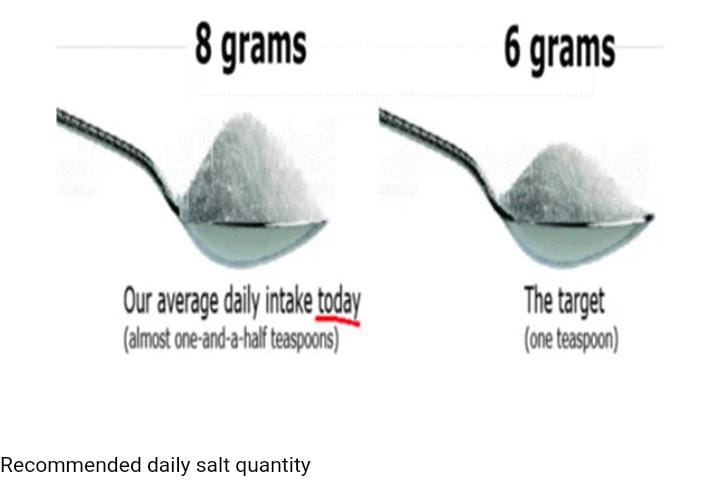Heart specialists say the regulation of salt in packaged foods remains crucial in checking rising cases of cardiovascular diseases such as heart attack and high blood pressure in the country.
The cardiologists affirmed that reduction in salt intake will reduce the risk of people’s exposure to these diseases, noting that strong evidence indicates that reduction of salt intake lowers blood pressure and reduces the risk of cardiovascular disease.
Seven million people could die of diseases linked to excessive salt consumption before the decade’s end unless governments immediately pass tighter restrictions on salt, a report by the World Health Organisation had warned in March.
The global health body stated that salt intake of less than five grams per day for adults helps to reduce blood pressure and risk of cardiovascular disease, stroke and coronary heart attack.
A Consultant Cardiologist at the Lagos State University Teaching Hospital, Ikeja, Dr. Ramon Moronkola during an interview with PUNCH Healthwise, said the Federal Government has a responsibility in regulating the salt content in packaged foods consumed in the country.
Moronkola stressed that the government must make conscious efforts to reduce the burden of cardiovascular diseases in the country through policy formulation and implementation.
According to the WHO, cardiovascular disease is the leading cause of death globally.
In Nigeria, research by WHO in 2018 shows non-communicable diseases prevalence to stand at 29 percent, cardiovascular diseases at 11 percent, cancer four percent and diabetes two percent.
The cardiologist emphasised that cardiovascular diseases could be prevented at the primary, secondary and tertiary levels while urging Nigerians to adopt a healthy lifestyle.
He said, “Cardiovascular diseases are diseases affecting the heart and blood vessels. Examples are stroke, heart attack, heart failure, peripheral artery disease.
“Cardiovascular disease may not have a direct cause but it has risk factors which interact to determine the risk of cardiovascular events.
“While some of the risk factors like age, race, hereditary are non modifiable, others like hypertension, diabetes, high cholesterol, obesity etc can be modified.
“Hypertension is the leading risk factor for cardiovascular disease affecting more than a billion people worldwide.”
He, however, said people could prevent cardiovascular diseases by adopting healthy living such as avoiding smoking and excessive alcohol intake.
“Eating healthy (low salt diet), increase in fruit and vegetable intake can help. People should reduce saturated fat intake and increase physical activities.
“Early detection and treatment of hypertension, diabetes and high cholesterol are important. Some of these can be achieved at an individual, community and government level”, he said.
On how to reduce cardiovascular diseases at the community and government level, the cardiologist said, “The community can form fitness groups, ensure healthy meal options are made available at our meetings and schools, and support individuals with risk factors or established cardiovascular disease.
“There must be deliberate government policies aimed at reducing cardiovascular disease burden.
“There must be regulation of salt content in packaged foods, creating walkways on our roads.
“Above all, there is a need to ensure universal health coverage to continue to re-emphasise the importance of healthy living.”
Experts say since the United Nations Sustainable Development Goals were adopted in 2015; there has been more attention on non-communicable diseases.
According to data available on WHO’s website, world leaders in 2018 agreed to take responsibility for their countries’ effort to prevent and treat NCDs.
They also agreed that these efforts should include policy, legislative and regulatory measures, including fiscal measures to protect people from tobacco use, unhealthy diets, and the harmful use of alcohol.
The leaders called on food manufacturers to take several actions.
These include reformulating products to reduce salt, free sugars and saturated and industrially produced Trans fats, using nutrition labelling on packaged food to inform consumers.











Leave a Reply